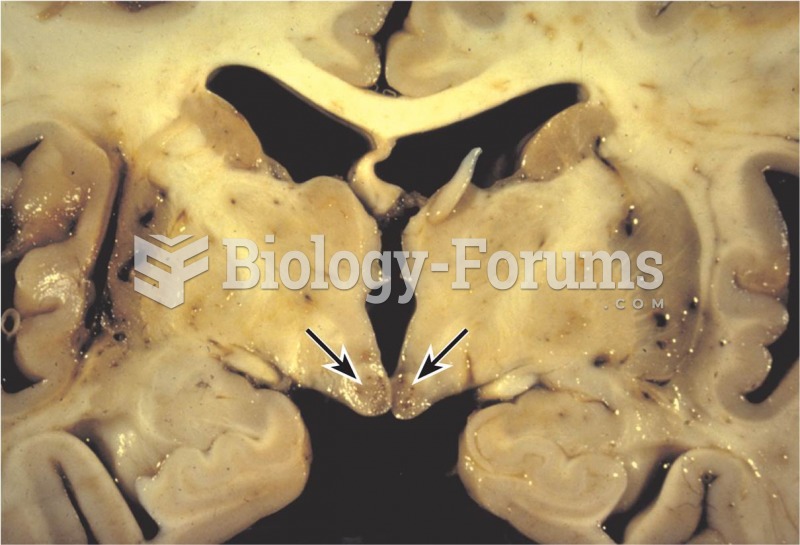This topic contains a solution. Click here to go to the answer
|
|
|
Did you know?
The B-complex vitamins and vitamin C are not stored in the body and must be replaced each day.
Did you know?
Parkinson's disease is both chronic and progressive. This means that it persists over a long period of time and that its symptoms grow worse over time.
Did you know?
The lipid bilayer is made of phospholipids. They are arranged in a double layer because one of their ends is attracted to water while the other is repelled by water.
Did you know?
No drugs are available to relieve parathyroid disease. Parathyroid disease is caused by a parathyroid tumor, and it needs to be removed by surgery.
Did you know?
The effects of organophosphate poisoning are referred to by using the abbreviations “SLUD” or “SLUDGE,” It stands for: salivation, lacrimation, urination, defecation, GI upset, and emesis.
 Cushing syndrome. This syndrome includes the symptoms of obesity, moon face, hyperglycemia, and musc
Cushing syndrome. This syndrome includes the symptoms of obesity, moon face, hyperglycemia, and musc
 The Taung Child, the first of the australopithecines to be discovered, is the type specimen for Aust
The Taung Child, the first of the australopithecines to be discovered, is the type specimen for Aust





